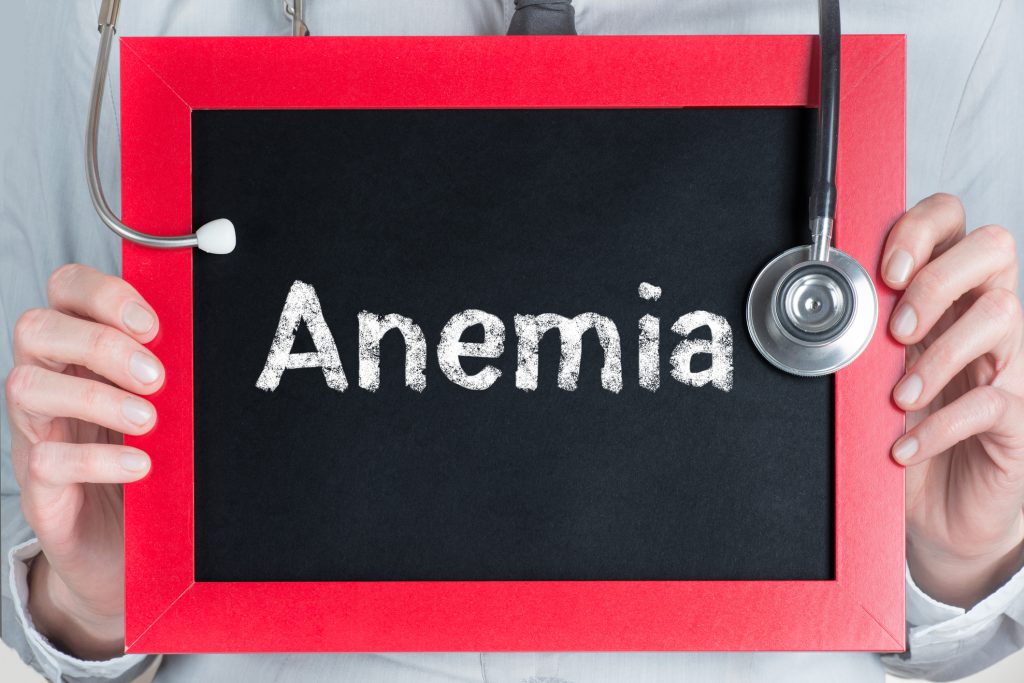Anemia is defined as having a lack of healthy red blood cells to carry adequate amounts of oxygen to the body’s tissues. It is one of the most common blood conditions in the United States, affecting almost 6% of the population.

There are three main causes of anemia. They include:
- A decrease in red blood cell production
- An increase in red blood cell destruction
- Blood loss
There are several factors that may lead to a decrease in red cell production, here a few:
- Not having enough iron, folate or vitamin B-12 in our diets
- Hypothyroidism
- Bone marrow or stem cell problems
Factors that can lead to an increase in red blood cell destruction are:
- Infections
- Severe hypertension
- Toxins produced by advanced liver or kidney disease
- Genetic disorders such as sickle cell disease or thalassemia
Blood loss can be the result of an injury; it can also occur for other reasons such as heavy menstrual periods or gastrointestinal disorders such as inflammatory bowel disease.
Some people are more at risk than others for developing anemia. Those who have an increased risk are:
- Women who have heavy periods
- Women who are pregnant and are not taking prenatal vitamins that include iron and folic acid
- Older adults
- Individuals with a family history of anemia
- Individuals living with chronic conditions such as diabetes, hypertension or kidney disease
- Individuals with a diet that lacks sufficient iron, vitamin B-12 or folate
The signs and symptoms of anemia can be mild or severe depending on the cause, they may include:
- Headaches
- Fatigue
- Weakness
- Shortness of breath
- Chest pain
- Irregular heartbeats
- Dizziness or lightheadedness
- Cold hands and feet
It is recommended that you see a doctor if any of these symptoms persist. During your appointment, your doctor may perform a physical examination and ask questions about your diet as well as family and medical history. A physical examination may be conducted and a series of tests ordered to determine a diagnosis.
Treatment for anemia depends on the cause. A patient’s treatment plan can involve making changes to their diet, and taking supplements. Prescription medications, chemotherapy, blood transfusions or marrow transplants may be needed in other instances
All content of this newsletter is intended for general information purposes only and is not intended or implied to be a substitute for professional medical advice, diagnosis or treatment. Please consult a medical professional before adopting any of the suggestions on this page. You must never disregard professional medical advice or delay seeking medical treatment based upon any content of this newsletter. PROMPTLY CONSULT YOUR PHYSICIAN OR CALL 911 IF YOU BELIEVE YOU HAVE A MEDICAL EMERGENCY.
